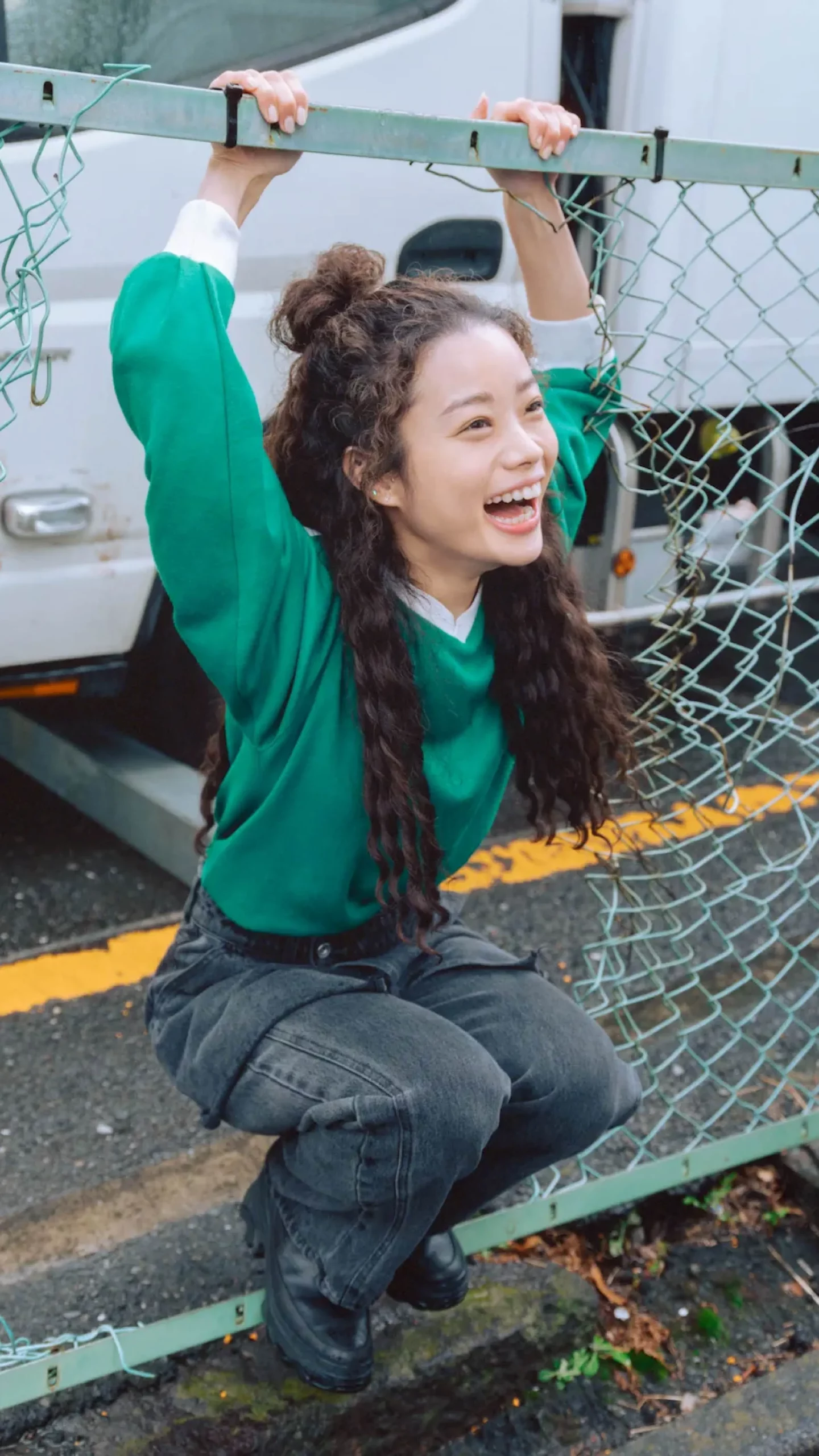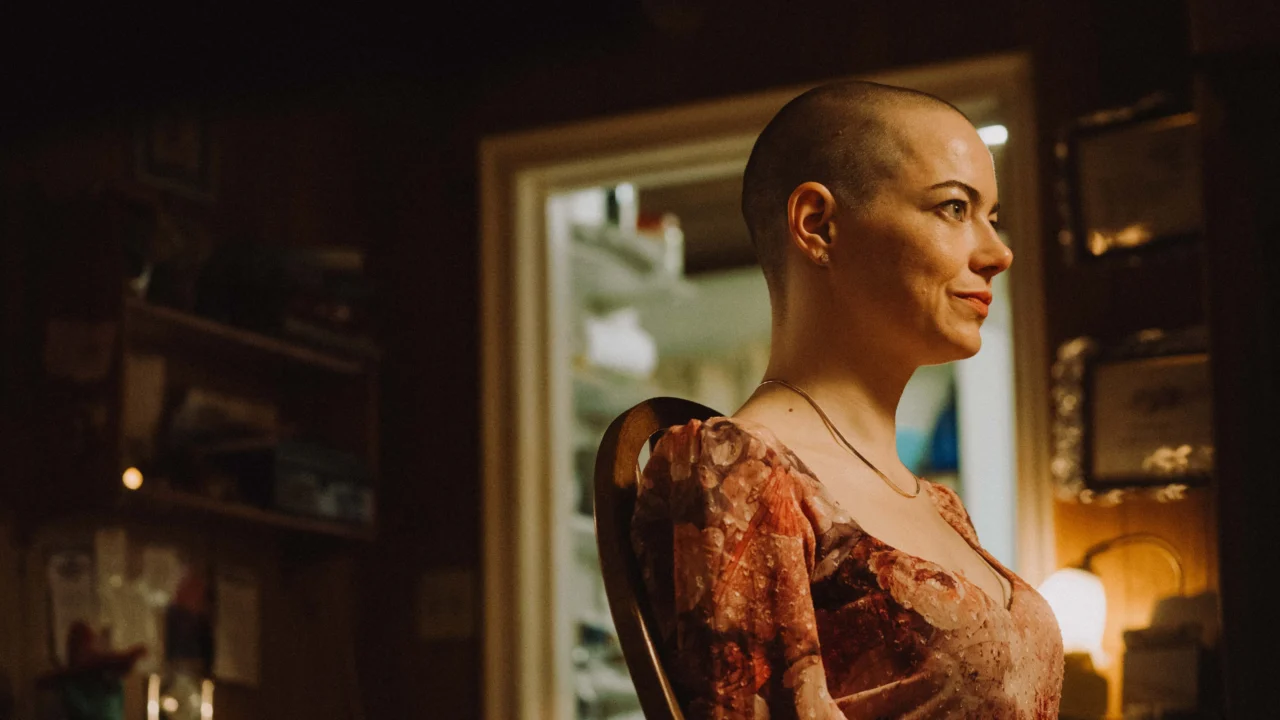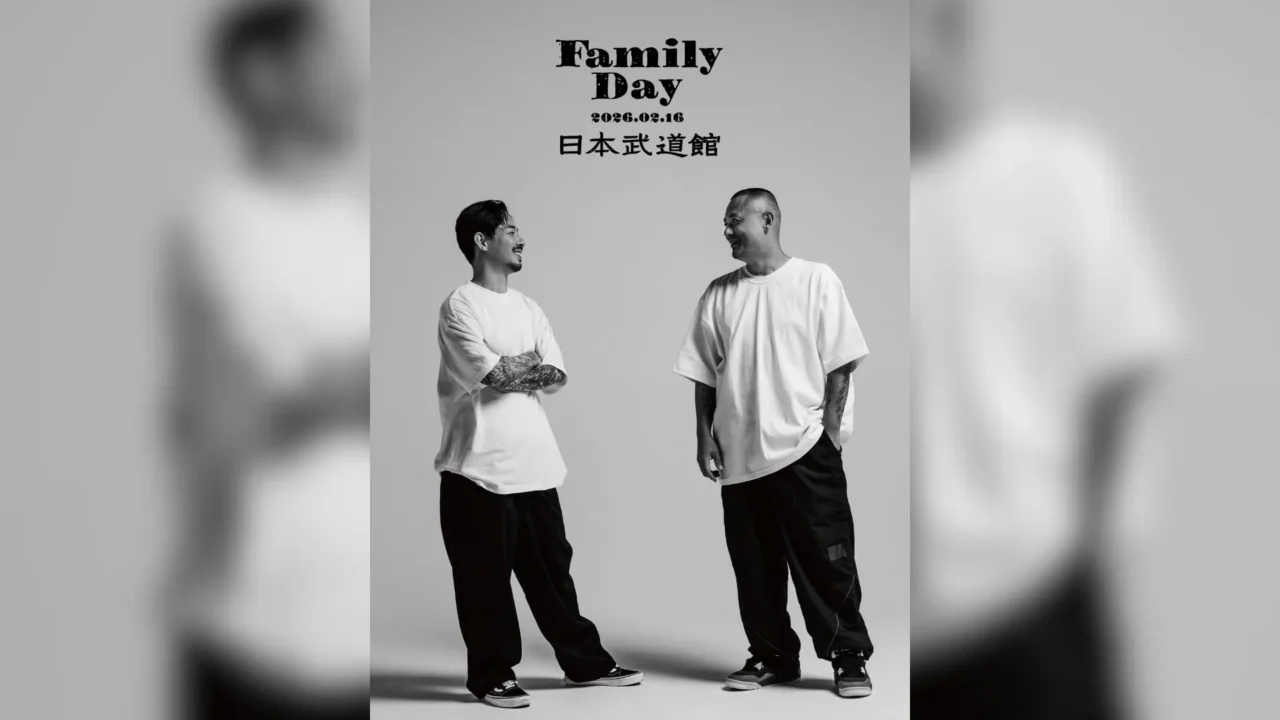“Enryo no Katamari”—literally, “a lump of restraint”—is a uniquely Japanese phrase that refers to the lone piece of food left behind on a shared plate, abandoned not out of dislike but because everyone was too polite to take it. It’s a small, quiet moment of hesitation that says a lot about human behavior—and it’s also the unlikely heart of solo artist xiangyu’s debut album.
With “Enryo no Katamari”, xiangyu crafts a sonic love letter to life’s overlooked details: the trivial, the awkward, the beautifully unremarkable. It’s a record that delights in the freedom to care about what doesn’t matter. Just as she once sang about the silent rapport with a familiar convenience store clerk in her debut EP “Hajimete no ○○ Zukan”, here she finds poetry in the everyday image of food left on a plate and builds her first full-length album around that fleeting, relatable scene.
Though she insists her music isn’t meant to convey a message, xiangyu’s work hums with a quiet philosophy—one rooted in curiosity and a desire to make space for the unimportant. In a world that moves fast and prizes significance, her songs offer gentle resistance: an invitation to notice, to wonder, and to let the small stuff be.
In this interview, we speak with xiangyu about the inspiration behind the album, her approach to music-making, and what it was like to collaborate with a featured guest for the very first time.
INDEX
“Enryo no Katamari”: An Album Inspired by the Connections from “OTO-SHIMONO”
First of all, congratulations on the release of your debut album. While many artists opt for a self-titled album, I thought it was very fitting of you to choose “Enryo no Katamari” as the title. I heard that contemporary artist Koichi Mitsuoka introduced you to this concept. Could you tell us how you first encountered this theme?
xiangyu: The initial spark came when I released my EP “OTO-SHIMONO” (released in November 2023), which focused on the theme of lost items. Through that EP, it seems that the contemporary artist Koichi Mitsuoka became aware of me. I had long been a fan of his work, and at that time, I was taking part of a J-WAVE radio show where I introduced interesting events and locations around Tokyo. When Mitsuoka had an exhibition in Tokyo, I had the opportunity to visit and interview him, and we really hit it off.
Thanks to that connection, he later invited me to a talk at one of his exhibitions in Shibuya. I assumed we’d be discussing the exhibit itself, but it turned out to be something entirely different [laughs]. He told me that the way I had transformed the concept of “lost items” into music resonated with him. He mentioned, “What you’re doing is incredible because it’s a method that reaches a broader audience than art ever could.” That moment made me realize, “This person shares a very similar points of view.”
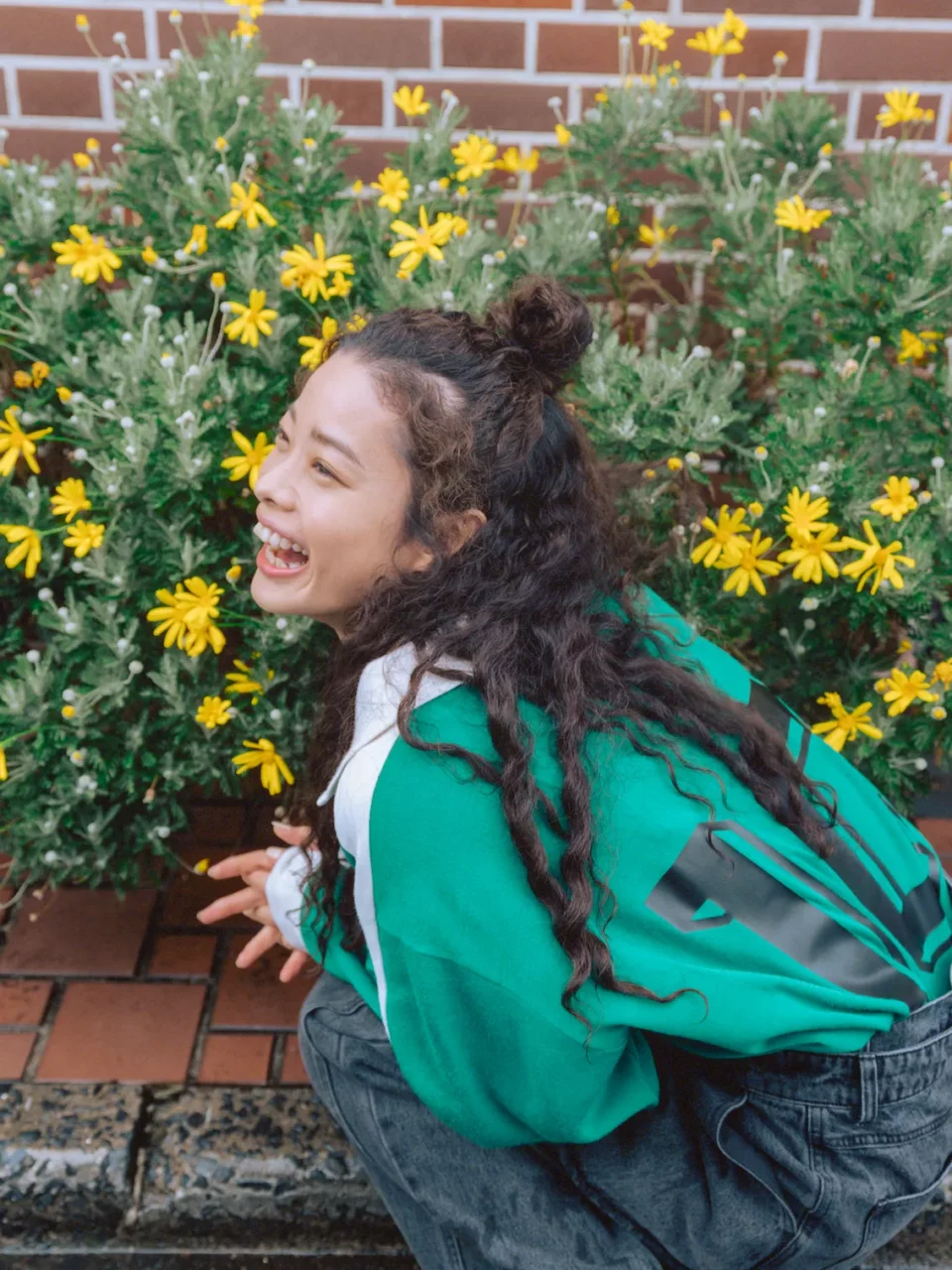
A boundary-pushing solo artist whose journey began with live performances in September 2018. xiangyu’s debut EP, “Hajimete no ○○ Zukan,” dropped in May 2019, marking the start of her exploration into music that defies genres. By November 2023, she had teamed up with Gimgigam to produce “OTO-SHIMONO”—an EP blending amapiano and gqom with her unique style. But her talents don’t stop there. xiangyu is also a force in fashion, art, film, and literature. In 2022, she made her film debut, starring and contributing the theme song, while also releasing her first book. In April 2025, she unveiled her debut full-length album “Enryo no Katamari,” solidifying her as a multifaceted artist with a voice that transcends music.
Can you elaborate on what you mean by “similar points of view”?
xiangyu: Mitsuoka shared with me hundreds of photos he had collected—each one showing a piece of food left behind, the so-called “enryo no katamari.” He asked me, “What would you do with a photo like this?” I had no idea that this familiar scene at the table even had a name like “enryo no katamari,” so it really caught me off guard. I immediately replied, “I’d turn it into music,” and that conversation naturally led to the idea of collaborating together.
Did you always have the idea of making it into an album?
xiangyu: Initially, I thought about creating just one song called “Enryo no Katamari,” but then I had this vague thought that it could be fun to follow the same approach as “OTO-SHIMONO”—to create a collection of songs, all tied to food and inspired by the same theme. That was the direction I had in mind.
INDEX
Enryo no Katamari Joins xiangyu’s “Things I Didn’t Know Had Names Encyclopedia”
Was it the fact that “enryo no katamari” has a name that piqued your interest, or was it the phenomenon itself—the moment when that last piece is left behind?
xiangyu: It was the name itself. I’ve always had a thing for discovering when everyday things have names, like realizing that the blue tab on a bread bag is called a closer, or that the tingling sensation when you hit your elbow is called the funny bone. I even made a song about the funny bone! It’s this instinct of mine to find out what’s behind the name of something familiar. So, learning that this familiar scene had a name—enryo no katamari—was just so fascinating. Before I even thought about wanting to share it with others, I just had to turn it into a piece of music.
If you had a “Things I Didn’t Know Had Names Encyclopedia”, would that be its latest entry?
xiangyu: Yes, exactly! That’s exactly the feeling. And the phrase enryo no katamari itself, with its combination of “enryo” (restraint) and “katamari” (lump), feels so uniquely Japanese and modest. I got curious about whether other countries have something like it, so I did some research and discovered that even within Japan, there are different terms. Enryo no katamari is common in Kansai, but in Kanto, they call it “one piece left in the Kanto way,” and in Aomori/Tsugaru, it’s referred to as Tsugaru-shu. I also learned that people from Tsugaru, aware of their own reserved nature, call those who bravely take the last piece “Tsugaru heroes.” It’s interesting how the same concept can be expressed so differently depending on the region.
The concept of enryo no katamari—where you acknowledge something that’s right in front of you and imagine the story behind it—feels like a natural progression from your previous work, OTO-SHIMONO. For that EP, was the fascination more about the phenomenon of “things that don’t belong being in the street”?
xiangyu: Yeah, exactly! Have you ever seen just one shoe left in the middle of the street? When I’m on tour, I spend a lot of time looking out the window during drives, and I love to think about how something random like that ended up where it is. If I see a glove lying in the street in winter, and it just happens to look like a peace sign, I would find it heartwarming. I guess I enjoy finding my own little games in those moments.
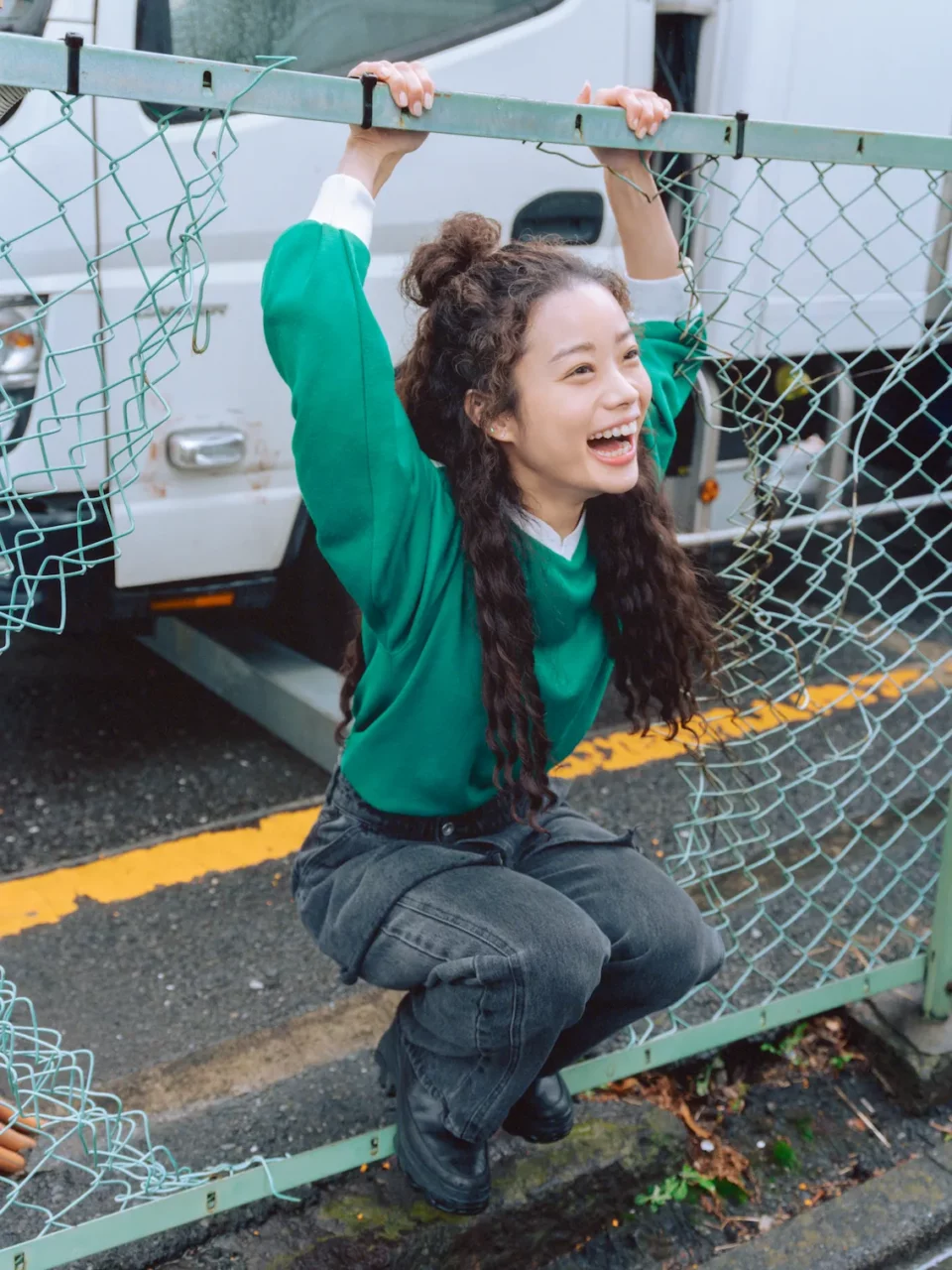
When did you start enjoying your own form of solo play?
xiangyu: It all started back in my school days when I had to commute an hour and a half each way from my parents’ house to Bunka Fashion College. I didn’t have an iPod back then, so I ended up eavesdropping on the conversations around me. I’d overhear the grumpy monologues of businessmen during the morning rush or the puzzling exchanges between elderly women in the middle of the day. Strangers’ conversations felt like their own little radio show, and I realized how fascinating it was to listen to other people’s stories. Even now, I find myself listening in on conversations in trains or cafes, enjoying them like a game or a book. For me, it’s just another form of entertainment—tuning into the stories of others.
INDEX
From Struggling to Enjoying: Music’s Impact on Her Interactions
Listening to music or reading a book is a personal choice to engage with things you love, but conversations can go in unexpected directions. I feel like you’re someone who can find the surprise in that.
xiangyu: Totally! When I overhear people’s conversations on the train, I sometimes find myself thinking, “Oh, this person is contemplating that.” And, for instance, during the evening rush, I like to imagine, “Is this person heading home, or are they off to meet someone for fun?” I really enjoy those little moments of daydreaming. I’ve always found them fascinating.
I feel like your creations stem from your interactions with others. One line in your release comment, “It’s not about good or bad, but the way people engage with the last piece, even if it’s past its prime, is uniquely theirs,” really struck me. The coldness of enryo no katamari feels different from the coldness of eating a solo meal ordered through Uber Eats. Without Koichi Mitsuoka, this album might not have come to life, and your debut album would likely have taken a different shape. Would you say that relationships with others are central to your creative process?
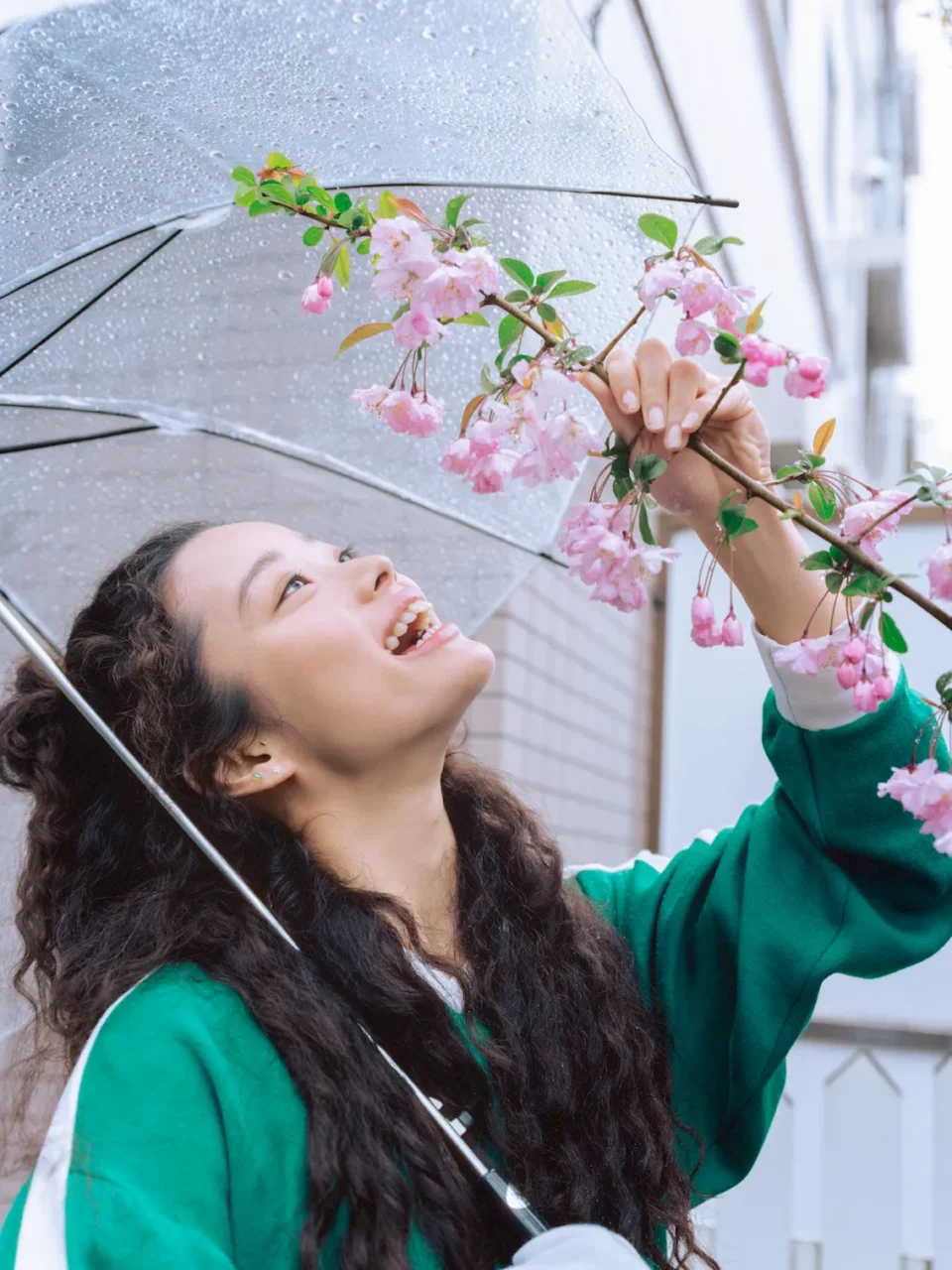
xiangyu: I think I’ve come to realize that it’s something essential for me. I’ve always liked people and been interested in them, and I’ve always wanted to talk to all kinds of people, but I was terrible at communication. People who only know the current version of xiangyu might be surprised, but I really struggled with it in the past. However, after about seven years of making music, I’ve slowly started to understand how to navigate relationships, how to connect with others, and how to communicate my feelings. I’ve started to really enjoy engaging with different people, including the audience. So, I believe that this album became a work that really values dialogue and connection with others.
When I made my last EP, it was more of a project where I solely focused on what I personally found interesting. It was very introspective, and I wasn’t thinking about collaborating or sharing with anyone. But this time, from the very beginning of the album’s creation, I had many conversations and thought about how my perspective on what I find interesting might look from other people’s viewpoints. That, I think, is a major difference.
How did you build these conversations?
xiangyu: I had many people listen to the tracks, and I also collaborated with artists I like to create some of the songs. The conversations with Koichi Mitsuoka were part of it, and I also took into account the reactions of live audiences. When I went on tour in different regions, I’d ask, “What do you do when you encounter the last piece of food—enryo no katamari?” I absorbed the values and thoughts of different people and stored them in my mind.”
INDEX
When the little things don’t have to mean anything—now that’s fun
The beauty of enryo no katamari is that it creates a shared understanding, allowing you to easily bond with strangers. You traveled to local spots, directly asking people “What do you think of this?” It’s a grounded approach, and the way you let those real-time conversations and connections gradually shape your work feels so genuine.
xiangyu: I’ve been tuning into conversations from complete strangers and random voices in restaurants, absorbing them and transforming them into my own interpretation in songs. For me, that’s a form of communication too. And I think that was key in creating this album.
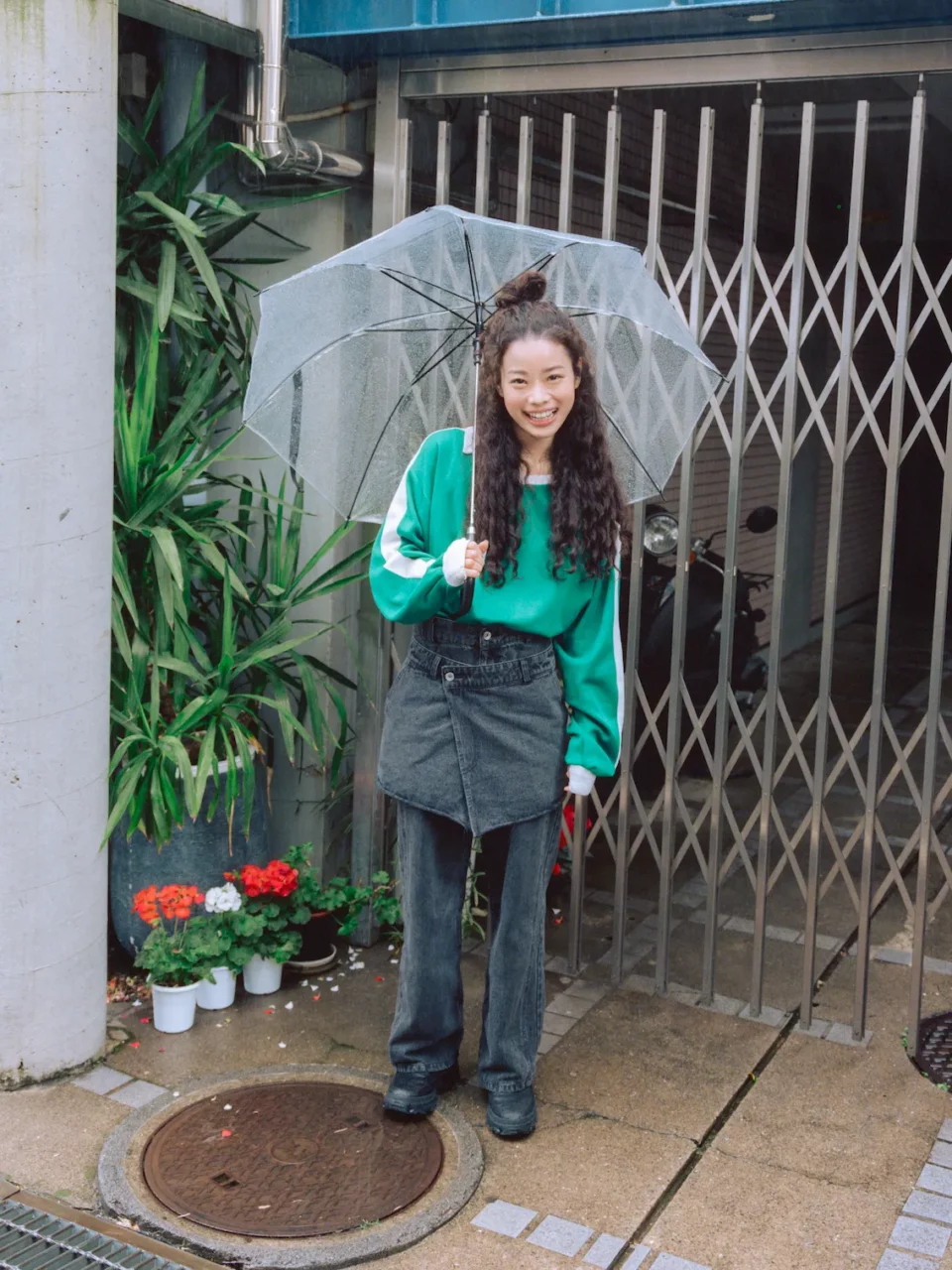
More people have been tagging you on Instagram when they find something that’s been left behind, right?
xiangyu: Oh, totally! It’s definitely increased. One person told me, “Ever since I heard your song about lost things, I’ve started looking down more when I walk!” I was not sure how I felt about it, but it really made me happy [laughs].
I don’t really make music to send a specific message, but what I want to say is that even the small, seemingly insignificant things in life should be able to exist freely. If the world can’t just accept these little things as normal, I don’t think I’d be able to live in it. This album is probably the most carefree one I’ve ever made, and I’m so happy that it actually works as a piece of art. I’ve even felt down before when someone said, “What’s the point of a leek on the sidewalk?” But when I see a leek on the street, I feel something—so I want to keep that mindset. I’d much rather live in a world where people can say, “Hey, I saw a leek on the road!” because that’s just more fun, right? If we could all share those little “I like this” moments in such a simple way, that’d be absolutely amazing.
These days, it feels like every minute is consumed by ticking off tasks—absorbing fleeting bits of knowledge, replying to emails, and so on. In a world that’s all about efficiency, I think there’s something truly rich in being able to embrace the trivial and the silly.
xiangyu: At some point, we stopped playing tag with our friends, right? We used to spend hours running around, but now, if you want to hang out, it feels like you have to grab food or drinks. I really admire people who can still enjoy those carefree, childish moments, no matter their age, and I hope to keep that spirit alive in myself too.
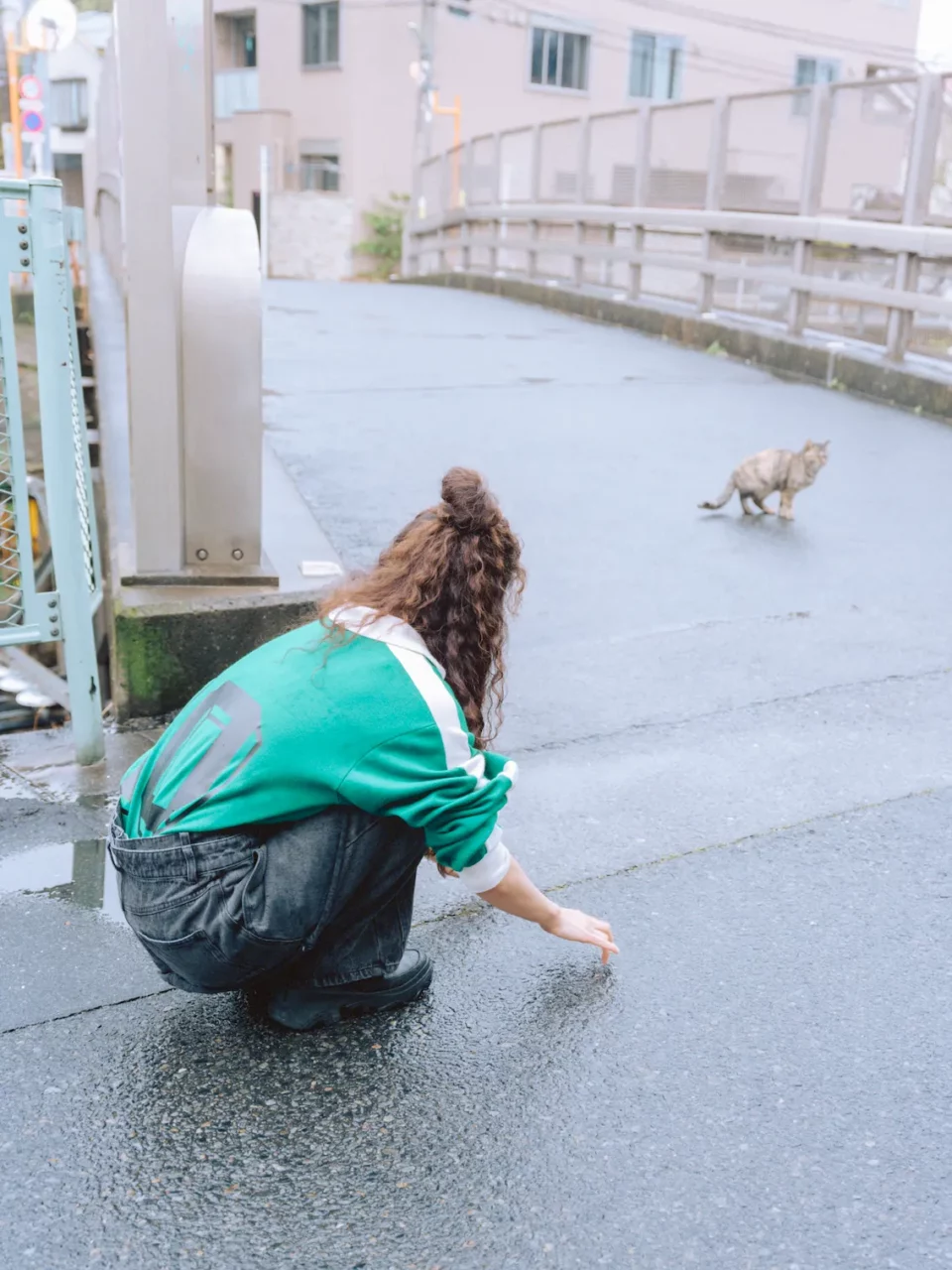
INDEX
A Desire to Know More: The Driving Force Behind xiangyu’s Curiosity
Your music seems to reflect a pure curiosity, like asking “Why does the sun rise in the east and set in the west?” Where does that curiosity come from?
xiangyu: Honestly, I don’t know. But I feel like it’s impossible to know everything about the world before you die, right? So I just want to learn as much as I can before it’s all over. For example, did you know there are so many types of mushrooms that aren’t even in field guides? I met this guy who’s basically a “Mushroom Master” and takes photos for mushroom books, and he told me there are still mushrooms out there that even he doesn’t know. That blew my mind.
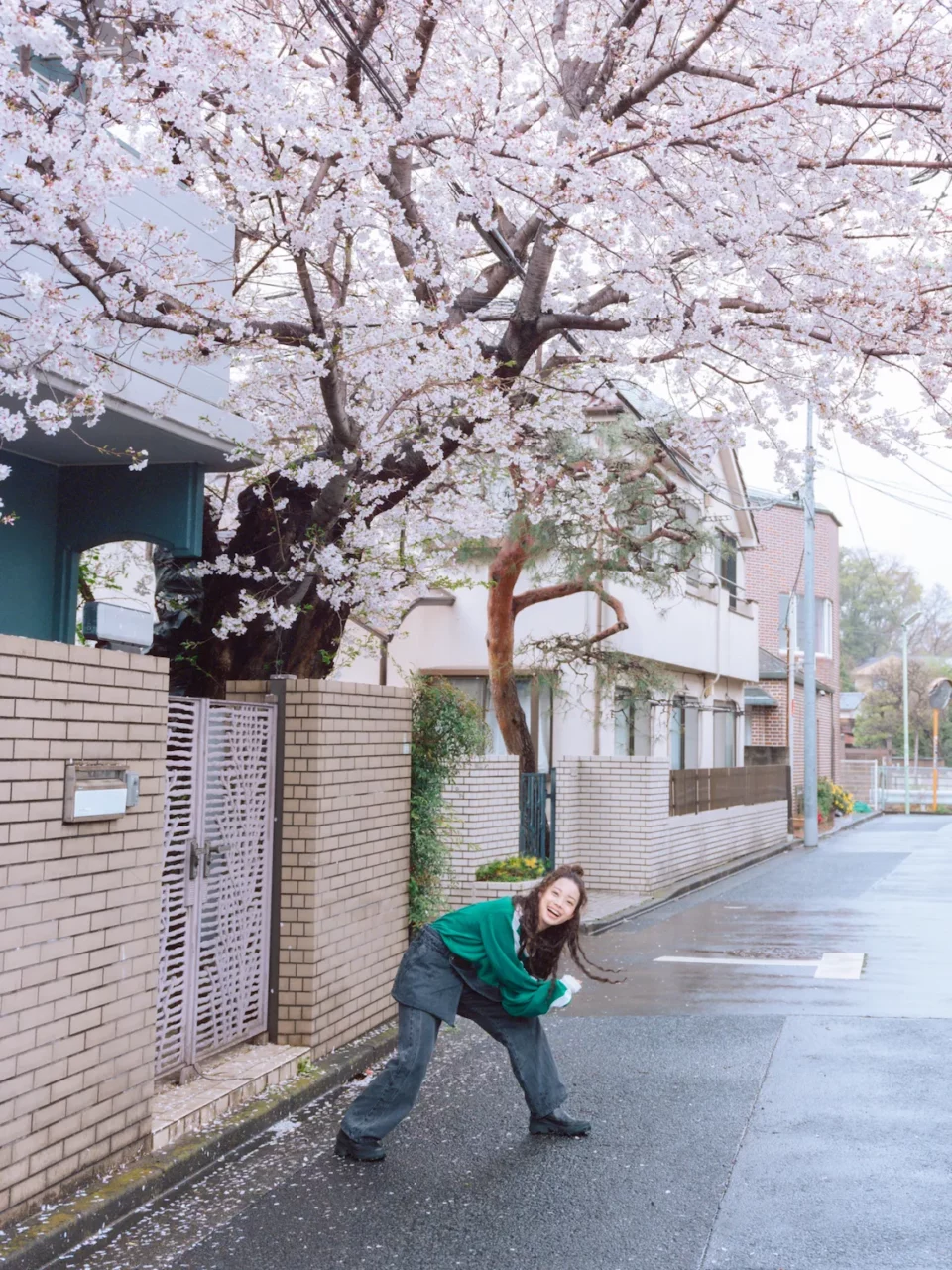
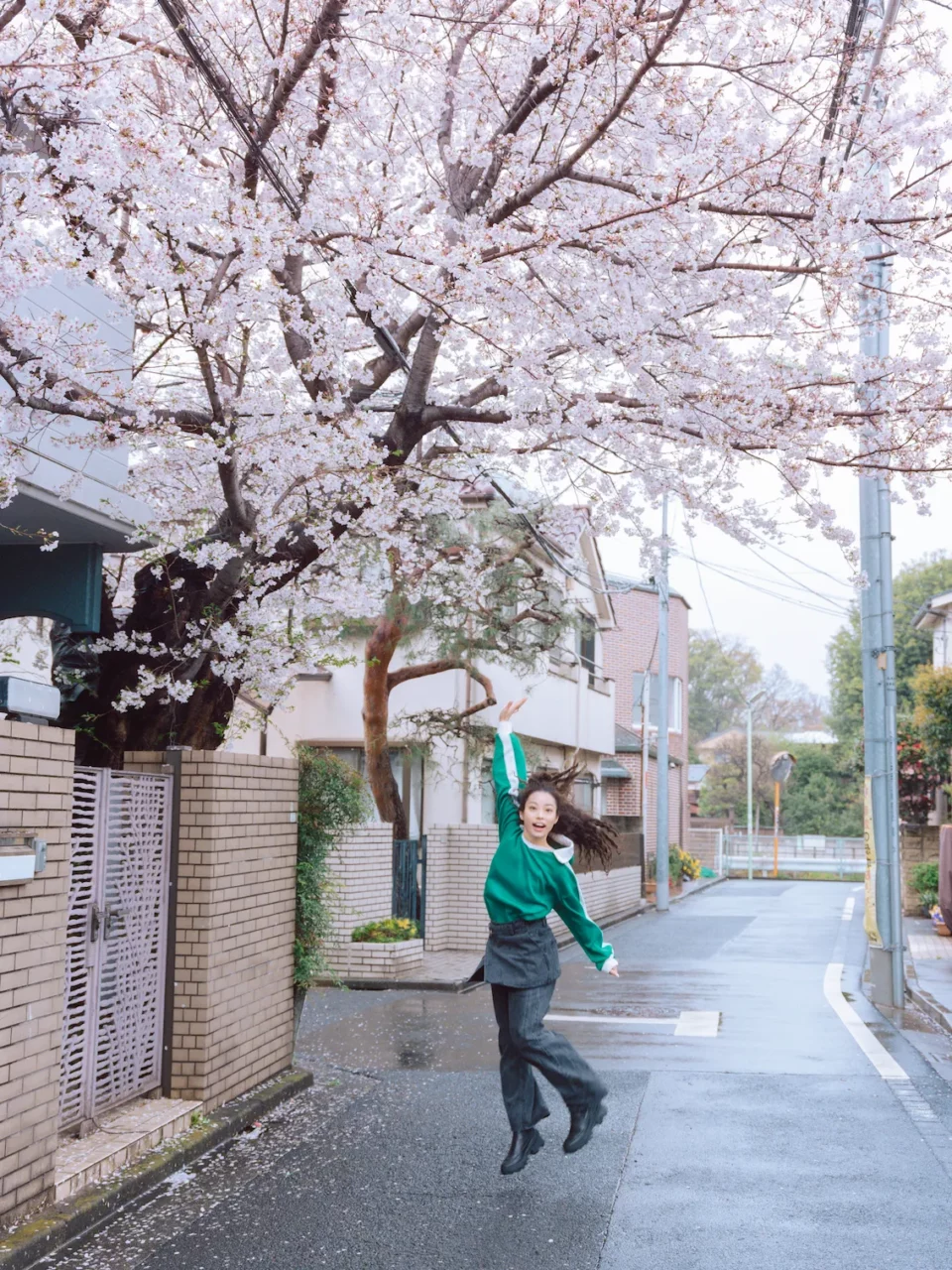
xiangyu: It’s the same with people. No matter how close you are to someone, today’s them might not be the same as tomorrow’s. That’s why I always have this desire to understand and learn, and I think that’s probably the biggest driving force within me.
I don’t really have this urge to vent frustrations about society or anything. Instead, I’m more driven by the curiosity of “What’s this all about?” I’d rather take a moment to think it through myself, really understand why I find something interesting, before putting it out as a piece of work. I feel like that approach is the foundation of my music-making.
You didn’t originally aim to be a musician, right? You shifted from the fashion field to music after being scouted. Do you think your past experiences have influenced your music?
xiangyu: Yeah, I’ve always had this feeling that I didn’t want to be in the spotlight—I just wanted my work to stand on its own in the world. That’s why I was making clothes since I was a teenager, but I reached a point where I realized I could only do so much alone. I also worked as an assistant costume designer, and it really bothered me that things I made were credited under someone else’s name. It was hard—“I made this, but it’s not mine in the world.” With that kind of dilemma, I started thinking, “I need to change this somehow.” Then, I remembered that someone who would later become my current chief manager (Yasutomo Fukunaga) had scouted me years ago. He told me, “What you want to do—music—can reach people faster than clothes ever will.” Those words stuck with me, and I thought, “Maybe I should just go for music.” That’s how it all started.
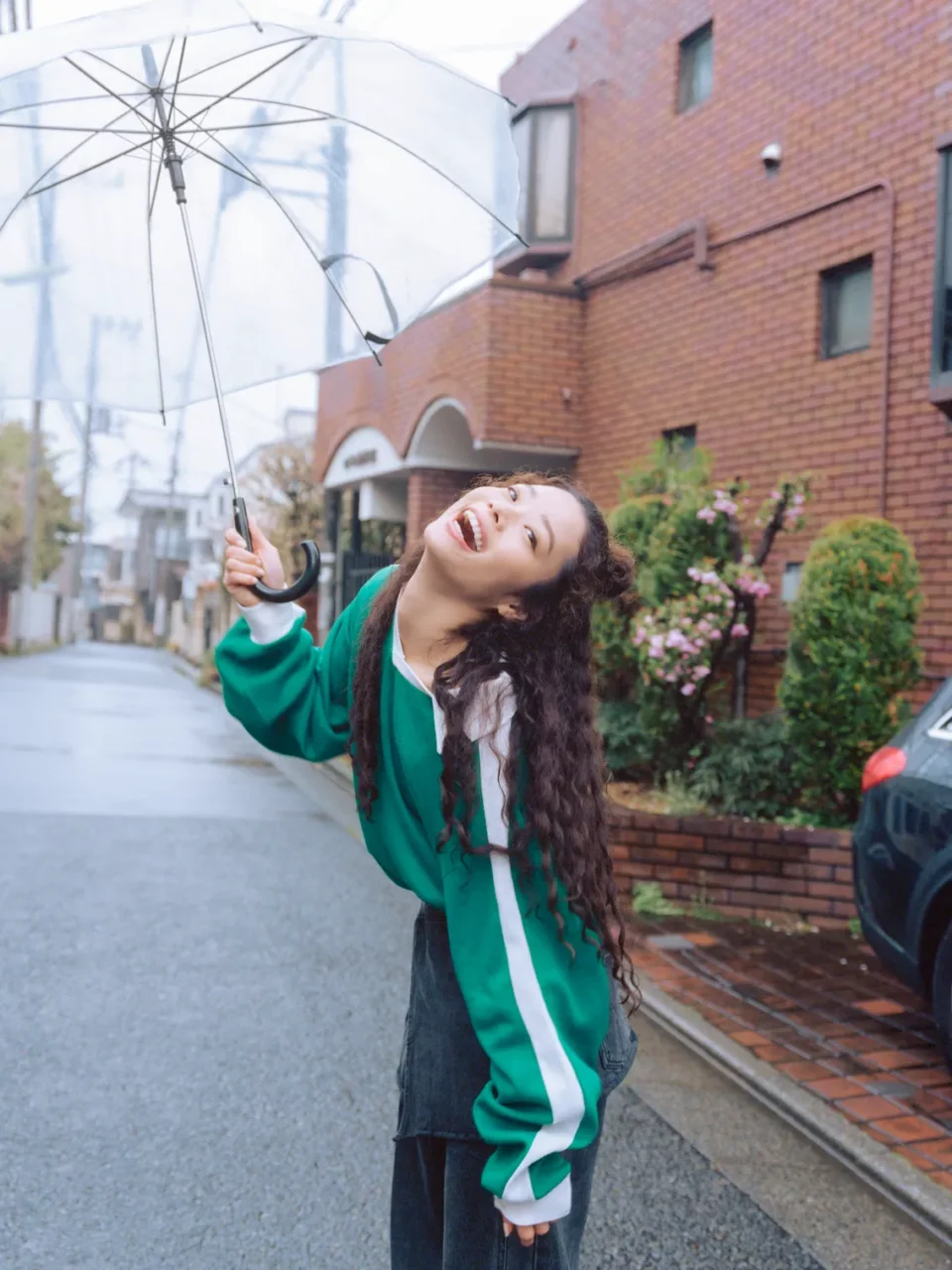
Mitsuoka-san’s comment at the start, “It’s incredible that you’re using music, which reaches the world more easily than visual art, to express yourself,” seems like it could be the perfect reflection of your musical path. Do you think so?
xiangyu: Yeah, that’s true. The way I express myself has evolved since I was scouted, but the core of what I’ve wanted to do has stayed the same for the past 12 or 13 years. It’s a realization I’ve come to again now.
INDEX
The Irresistible Vibe of Dance Music in xiangyu’s Tracks
I’d also like to ask about the production side of the album. This time, Mitsuoka-san grabbed the mic and even rapped on “Zutto Iru Tomato (The Lingering Tomato).” Why did you decide to have him sing on the track?
xiangyu: It just felt like a natural progression. Through his work and writing, I always thought he had a great sense of words, so it felt like a waste to only ask him for the album artwork. Then, in the course of conversation, I casually asked, “Would you be interested in writing some lyrics?” and he immediately replied, “I’ll do it!” When I saw the lyrics he sent, they were full of powerful phrases like, “as immovable as a mountain” [laughs]. It was really interesting, and when I imagined those words in Mitsuoka-san’s voice, it just felt like the right fit for him to actually sing them.
I see, that’s how it all came together. On the other hand, Gimgigam’s work on the sound really stands out, especially with the dance music element. Just like how “Enryo no Katamari” taps into a shared sense of awareness that resonates with Japanese listeners, dance music is a genre that people can enjoy even if they don’t understand the lyrics. What’s your approach to dance music?
xiangyu: The vibe of dance music is something I really cherish, both for myself and within the team. While the lyrics are super important to me, the way the words sound and feel is just as crucial, so I’m constantly hunting for phrases that hit the right note. When a phrase doesn’t have the right flow, I can get pretty stuck, and finding that balance is always tricky. If a phrase works with the theme but doesn’t sound great, I’ll try to tweak it. But if something veers off from what I meant but still sounds good, I’m totally okay with that too.
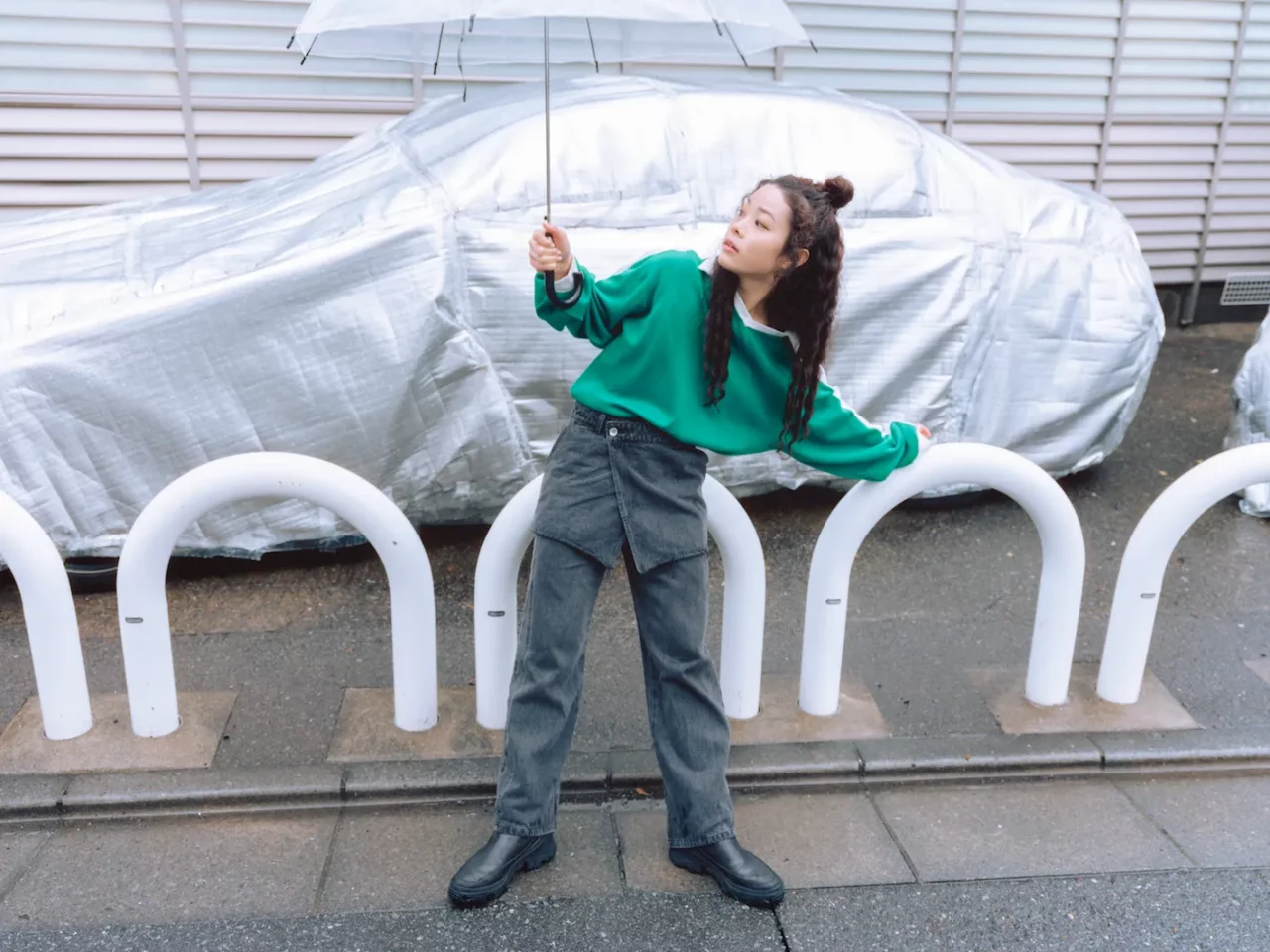
INDEX
First Feature Collaboration: Tavito Nanao and Kuro, a Perfect Match for the Album Concept
How did you come to collaborate with Tavito Nanao and Kuro (TAMTAM) for your first-ever feature on this album?
xiangyu: The first person who came to mind was Tavito Nanao because I thought he’d really vibe with the concept. Honestly, if he had turned it down, I might have scrapped the idea of featuring anyone at all. At that point, I’d only met him once, but through our social media exchanges and my spontaneous involvement in his “Food Rescue” initiative, I felt a strange, one-sided connection with him. So, I took a leap and sent him the track along with a letter. To my surprise, I quickly got a voice memo back from him saying, “I came up with this melody.” From there, we ended up creating the song entirely through phone calls and emails, never meeting face-to-face. It felt almost like we were writing letters back and forth, and somehow, that made the process even more romantic. It naturally led to a mellow, heartfelt track.
xiangyu: And Tavito, he’s really sincere when it comes to music. He’d carefully consider every word and melody, saying things like, “I think this would resonate better,” or “This part might not come across as well.” It was such a luxury to work with him like that. I don’t think I’ve ever approached music with this much dedication before.

xiangyu: Plus, the release comment he sent after the track was finished truly meant a lot to me. Even though we had only met once, he said, “I really trust her, she’s someone who volunteers in Tohoku and helps out in Yokohama’s Sugamo area.” It wasn’t about praising the track or my rap skills. It made me realize how incredible it feels to be trusted as a person, not just for your music. It really made me want to live in a way that honors those words.
How about Kuro from TAMTAM?
xiangyu: I’m a huge fan of Kuro and his band TAMTAM. I love them so much that even if our live shows are on the same day, I’d sneak in and watch their set between rehearsals. Just like with Tavito-san, I wanted someone who would be just as excited about the concept, so I sent Kuro a letter. He replied with this really long message, sharing his own “method for dealing with Enryo no Katamari” (a reference to the album theme), and ended it with, “So, I’ll do it.” It was amazing!
xiangyu:Kuro is the one who took the theme of the song (Cosmic Bun) and expanded it to include space. The idea of imagining space from a single soup dumpling left on a Chinese round table never occurred to me, so I’m really glad I asked him to be part of it. The idea that “when you crack open that dumpling, there’s actually a universe inside” — my strange daydreams — Kuro totally embraced it, and that’s how the song came to life.
So, they already knew all about it [laughs].
xiangyu:Tavito-san and Kuro-san were both super perceptive from the beginning, but after working together, they said things like, “Since the release party, I’ve been thinking about this more,” or “It made me rethink how I approach hesitation.” Even though they already had that kind of mindset, hearing that it gave them a new perspective made me really happy. It’s such a nice feeling—like this small idea I put out there is rippling outward.
Now that the album’s out, it’s exciting to think about how Enryo no Katamari will continue to reach more listeners and become part of their everyday lives.
xiangyu: Yeah, totally. I’ve come to realize that, at the end of the day, what I really want is to connect with people through my work.
Lastly, since April is when a lot of people in Japan start new chapters in life, it’s also a time when many struggle with relationships or fitting in. As someone who really values communication, is there a mindset or phrase you personally hold dear?
xiangyu: “Don’t sweat the small stuff,” I guess. There was a time when I didn’t want to sing in front of others because I was afraid people would think I was tone-deaf. I used to care way too much about what others thought of me. But over time, I’ve realized that, honestly, most people aren’t really paying that much attention anyway.
Also, I’ve never talked about this much, but my younger brother went through a period where he shut himself off from the world. He got discouraged after struggling with exams and kind of lost hope in life. I’m not living a conventional life as a company worker or anything, so I started thinking, What could someone like me possibly do for him? And somewhere in the back of my mind, the answer was: maybe singing in front of people.
He knew I had a complex about that, so I thought maybe I could show him — like, “Your sister is out here in her 30s still singing ridiculous songs about crayfish.” That doesn’t define me as an artist entirely, but even if this album doesn’t resonate with anyone, it’s not the end of the world. I think it’s totally okay to express yourself freely, without putting too much pressure on it.
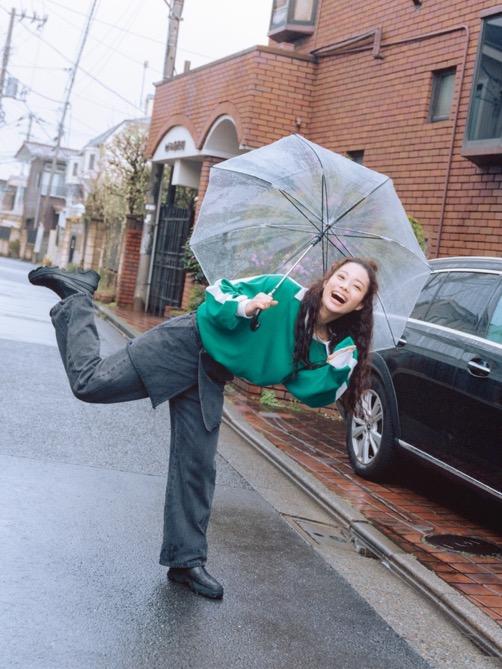
xiangyu “Enryo no Katamari”
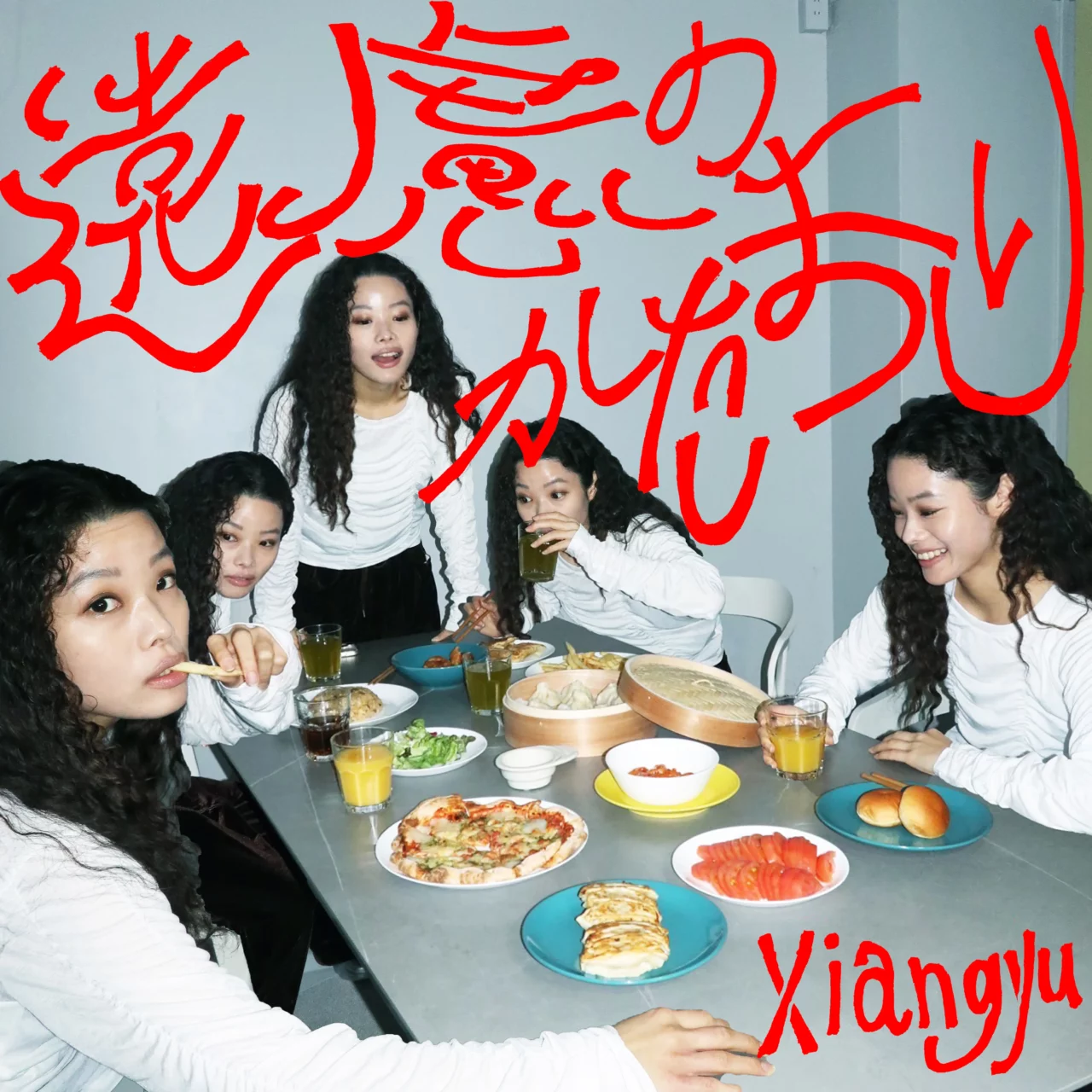
April 25 (Friday) release
- Enryo no Katamari
- Rasuichi no Pizza
- Zutto Iru Tomato
- Uchū Pie (feat. Kuro)
- Haccha-KO
- Mottainai Obake
- Piece of Cake (feat. Tavito Nanao)
Distribution link: https://orcd.co/xiangyu_enryonkatamari




